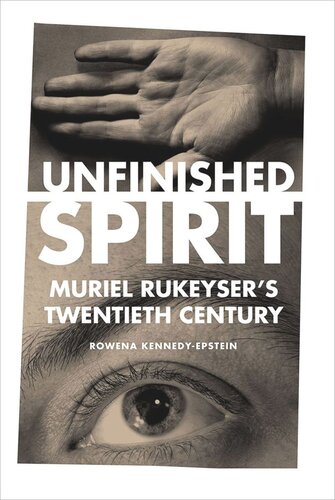

Most ebook files are in PDF format, so you can easily read them using various software such as Foxit Reader or directly on the Google Chrome browser.
Some ebook files are released by publishers in other formats such as .awz, .mobi, .epub, .fb2, etc. You may need to install specific software to read these formats on mobile/PC, such as Calibre.
Please read the tutorial at this link: https://ebookbell.com/faq
We offer FREE conversion to the popular formats you request; however, this may take some time. Therefore, right after payment, please email us, and we will try to provide the service as quickly as possible.
For some exceptional file formats or broken links (if any), please refrain from opening any disputes. Instead, email us first, and we will try to assist within a maximum of 6 hours.
EbookBell Team

4.0
46 reviewsIn Unfinished Spirit, Rowena Kennedy-Epstein brings to light the extraordinary archive of Muriel Rukeyser's (1913–1980) unpublished and incomplete literary works, revealing the ways in which misogyny influences the kinds of texts we read and value. Despite her status today as an influential poet, much of Rukeyser's critical and feminist writing remained unfinished, supressed by the sexism of editors, political censure, the withdrawal of funding and publishing contracts, as well the conditions of single motherhood and economic precarity.
From Savage Coast, her novel of the Spanish Civil War (which Kennedy-Epstein recovered, edited, and published to great acclaim in 2013) to her photo-text collaboration with Berenice Abbott, essays on women writers, radio scripts, and biographies, Unfinished Spirit traces the creation, reception, and rejection of Rukeyser's most ambitious texts—works that continued the radical, avant-garde project of modernism and challenged an increasingly hegemonic Cold War culture. Bound together by Rukeyser's radical vision of artistic creation and political engagement, these incomplete texts open a space to theorize the politics of the unfinished for understanding women's artistic production, reasserting the importance of the archive as a primary site of feminist criticism.